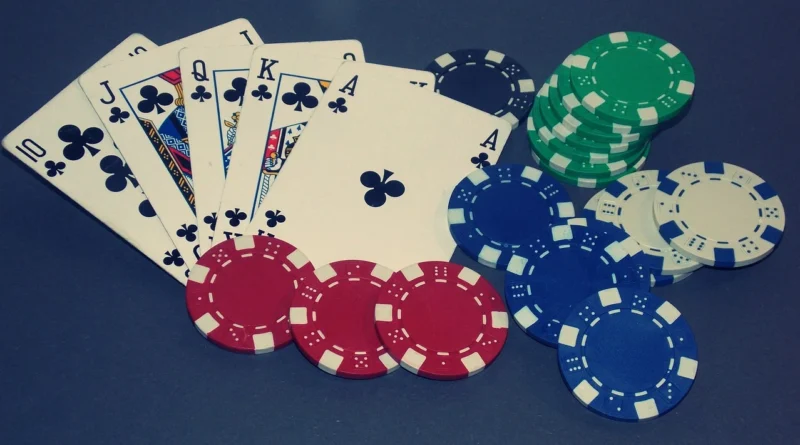Omaha Poker: The Thrilling Dynamics of Four-Card Mastery
In the vibrant spectrum of poker variants, Omaha Poker emerges as a riveting and strategic sibling to the widely recognized Texas Hold’em. Renowned for its unique structure and intricate gameplay, Omaha introduces a dynamic twist to traditional poker, offering players the challenge of mastering a four-card hand. As we delve into the world of Omaha Poker, we’ll explore its rules, delve into strategic considerations, and uncover the distinct qualities that set it apart as a thrilling poker experience.
Cracking the Code of Omaha Poker:
Omaha Poker, often referred to as “Omaha,” shares fundamental principles with Texas Hold’em but diverges significantly in one key aspect – the number of hole cards dealt to each player. In Omaha, each player receives four private cards, also known as hole cards, instead of the two dealt in Texas Hold’em. The core objective, however, remains consistent – create the best hand possible using a combination of hole cards and community cards.
Navigating the Components:
Hole Cards: The game commences with each player being dealt four private cards. Players must utilize exactly two of these hole cards in conjunction with three of the five community cards to form their hand.
Community Cards: The board features five community cards, revealed in stages: the flop (three cards), the turn (one card), and the river (one card). These cards are shared among all players and contribute to the creation of hands during each betting round.
Betting Rounds:
Pre-flop: Players receive their four hole cards, and the initial betting round ensues.
Flop: Three community cards are unveiled. The second betting round follows.
Turn: A fourth community card is added. Betting resumes.
River: The fifth and final community card is revealed. The last betting round occurs, leading to a showdown if needed.
Showdown: If multiple players remain after the final betting round, a showdown transpires. The player with the best five-card hand, formed by precisely two of their hole cards and three community cards, claims the pot.
Omaha Hand Rankings:
Understanding hand rankings is pivotal in Omaha Poker. The hierarchy mirrors standard poker hands, and players aim to create the highest-ranking hand using their hole cards and community cards. The potential hands, from highest to lowest, include:
Royal Flush: A, K, Q, J, 10 of the same suit.
Straight Flush: Five consecutive cards of the same suit.
Four of a Kind: Four cards of the same rank.
Full House: Three cards of one rank and two of another.
Flush: Five cards of the same suit, not in sequence.
Straight: Five consecutive cards of different suits.
Three of a Kind: Three cards of the same rank.
Two Pair: Two pairs of cards of the same rank.
One Pair: A single pair of cards of the same rank.
High Card: No hand, with the highest card determining the winner.
Strategies for Omaha Success:
Mastering Omaha Poker demands a distinct set of strategies, given the four-hole card complexity. Here are key considerations to elevate your Omaha gameplay:
Starting Hand Selection: Due to the four-hole card setup, emphasis shifts to selecting hands with connected cards, suitedness, and the potential for nut hands. Players seek hands that offer multiple possibilities on the flop and can form strong draws.
Hand Potential Awareness: Omaha is a game of potential, with players often having several draws and combinations available. Recognizing the potential of your hand in different directions (straights, flushes, full houses) is essential, and a strong starting hand may need versatility on the flop to retain its value.
Positional Play: As in other poker variants, your position at the table influences your strategy. Being in a later position provides more information about opponents’ actions, aiding in more informed decisions.
Drawing Hands and Wraparounds: Omaha is renowned for its drawing nature. Wraparound straight draws, where consecutive cards can complete a straight with multiple board cards, hold significant value. Effectively playing drawing hands is a key aspect of Omaha strategy.
Counterfeiting Awareness: In Omaha, hands can be “counterfeited” if community cards create a better hand than the player’s original holding. Being aware of this possibility and adjusting your strategy is crucial to avoid unexpected setbacks.
Disciplined Betting: Omaha rewards disciplined and strategic betting. While the potential for strong hands is higher, players must avoid overcommitting to hands that may lose their value as community cards are revealed.
Omaha Poker Tournaments:
Omaha Poker tournaments add an extra layer of excitement to the game. Navigating the dynamics of multi-table tournaments demands a solid grasp of both fundamental principles and tournament strategy. Efficient stack management, adaptation to changing blind levels, and capitalizing on opportunities to accumulate chips are vital skills in Omaha tournaments.
Online Omaha Poker: The Digital Frontier:
The digital age has seamlessly integrated Omaha Poker into online platforms, offering a diverse array of games and stakes. Online Omaha Poker provides the convenience of playing from home, a global player pool, and the opportunity to engage in both cash games and tournaments.
The Allure of Omaha Poker:
Omaha Poker’s appeal lies in its dynamic and action-packed nature. The four-hole card structure introduces an additional layer of complexity, demanding strategic thinking and adaptability. The potential for significant hands and thrilling draws makes every Omaha hand a potential game-changer.
In Conclusion:
Omaha Poker stands as a captivating and distinctive member of the poker family. With its four-hole card dynamics, shared community cards, and emphasis on versatility, Omaha challenges players to elevate their strategic thinking and embrace the dynamic nature of the game. Whether played casually among friends or in the competitive arena of tournaments, Omaha Poker offers a unique and exhilarating poker experience, beckoning players to master the art of four-card mastery.
